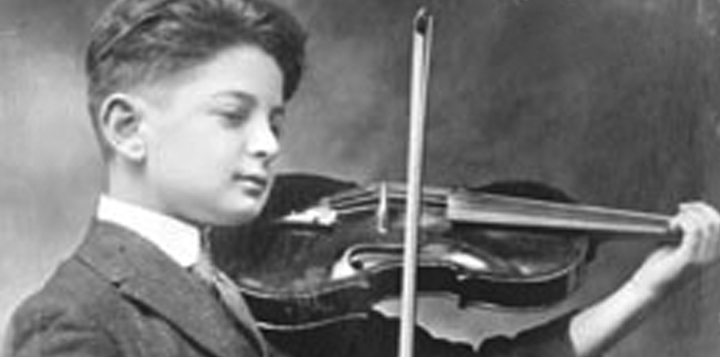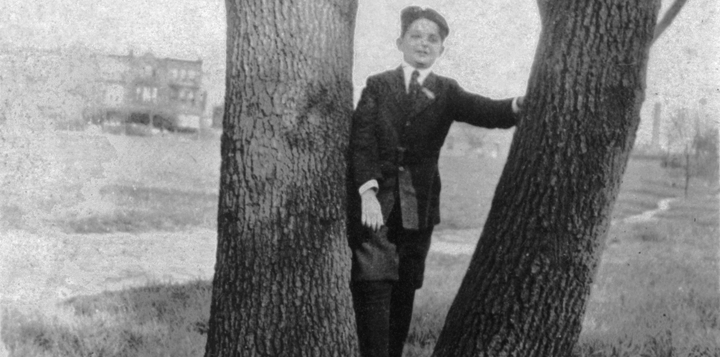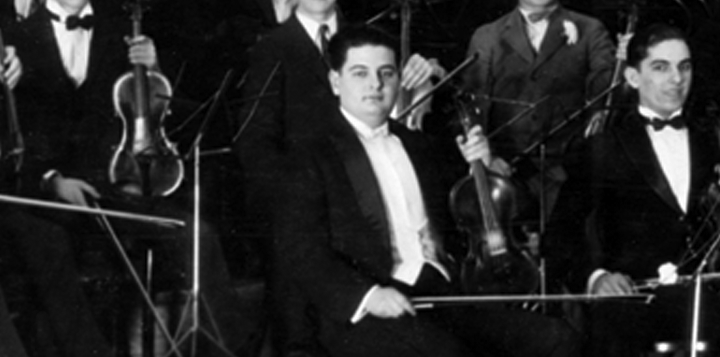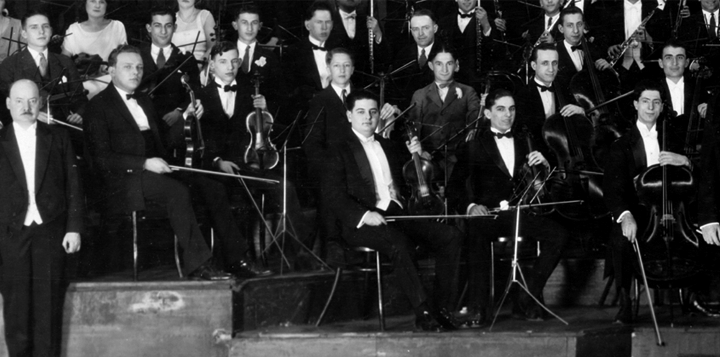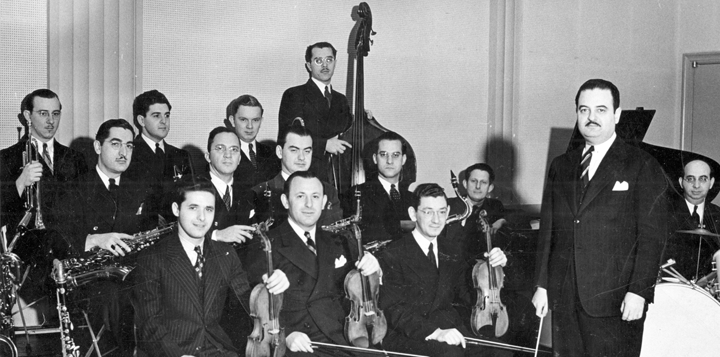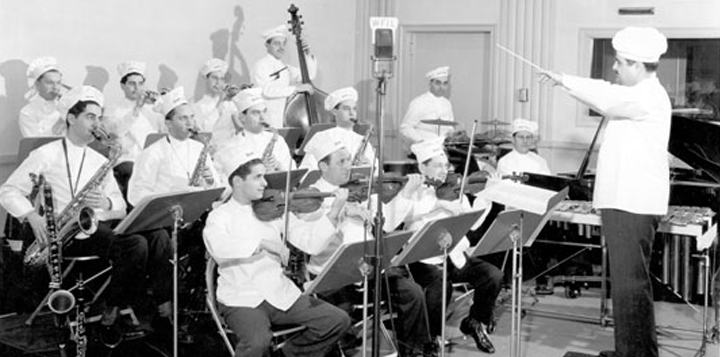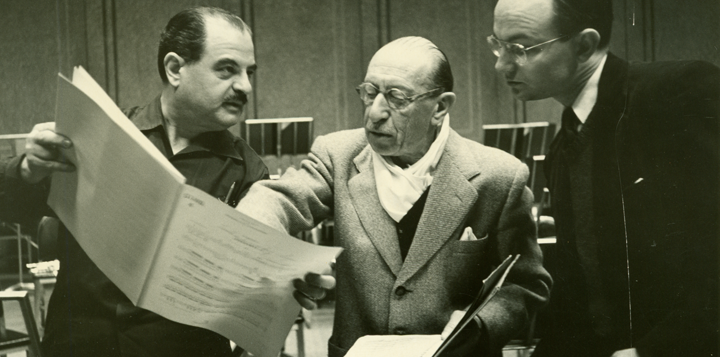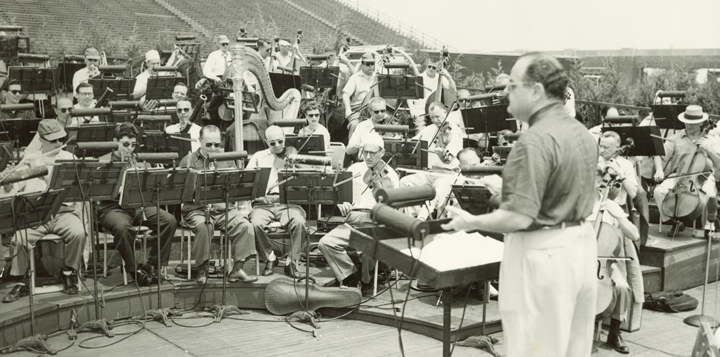At age 10, he organized an orchestra at the George W. Childs School in South Philadelphia during the First World War: it had 10 violins, woodwinds, trumpet, and drums, and a 10-year old Norman as conductor.
From there he attended the prestigious Combs Conservatory in North Philadelphia. In 1922, at the young age of 14, he played a series of violin recitals on WLIT and became the first instrumentalist to perform on local radio.
In 1934, Norman Black became assistant conductor of the KYW studio orchestra. Six years later, he became the Musical Director of radio station WFIL where he formed the WFIL String Ensemble and, shortly after the station went on the air, became the first musician to conduct a live orchestra on any local FM station.
During his time with the Philadelphia Orchestra, Norman Black was an active member of the musician’s union and was dedicated to improving conditions for the Orchestra members.
Six months before his forced retirement at age 65, he resigned, at the sacrifice of a significant portion of his pension. He unsuccessfully sued the Orchestra association against forced retirement.
“All my life I have opposed discrimination and will, therefore, not permit the association to oust me strictly because of my birthdate but reserve the right, out of respect for my personal dignity to resign on behalf of other musicians who may one day face the same indignity,” said Norman Black.
After resigning from the Orchestra, he continued to play music and teach violin. In 1976, he reformed his Philadelphia Symphonette and performed three concerts before his death in 1977 at age 69.

